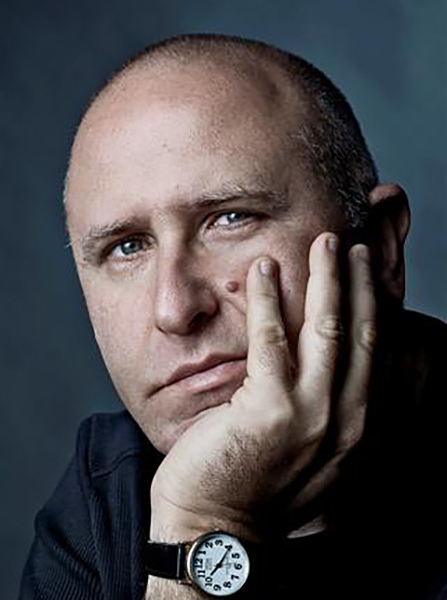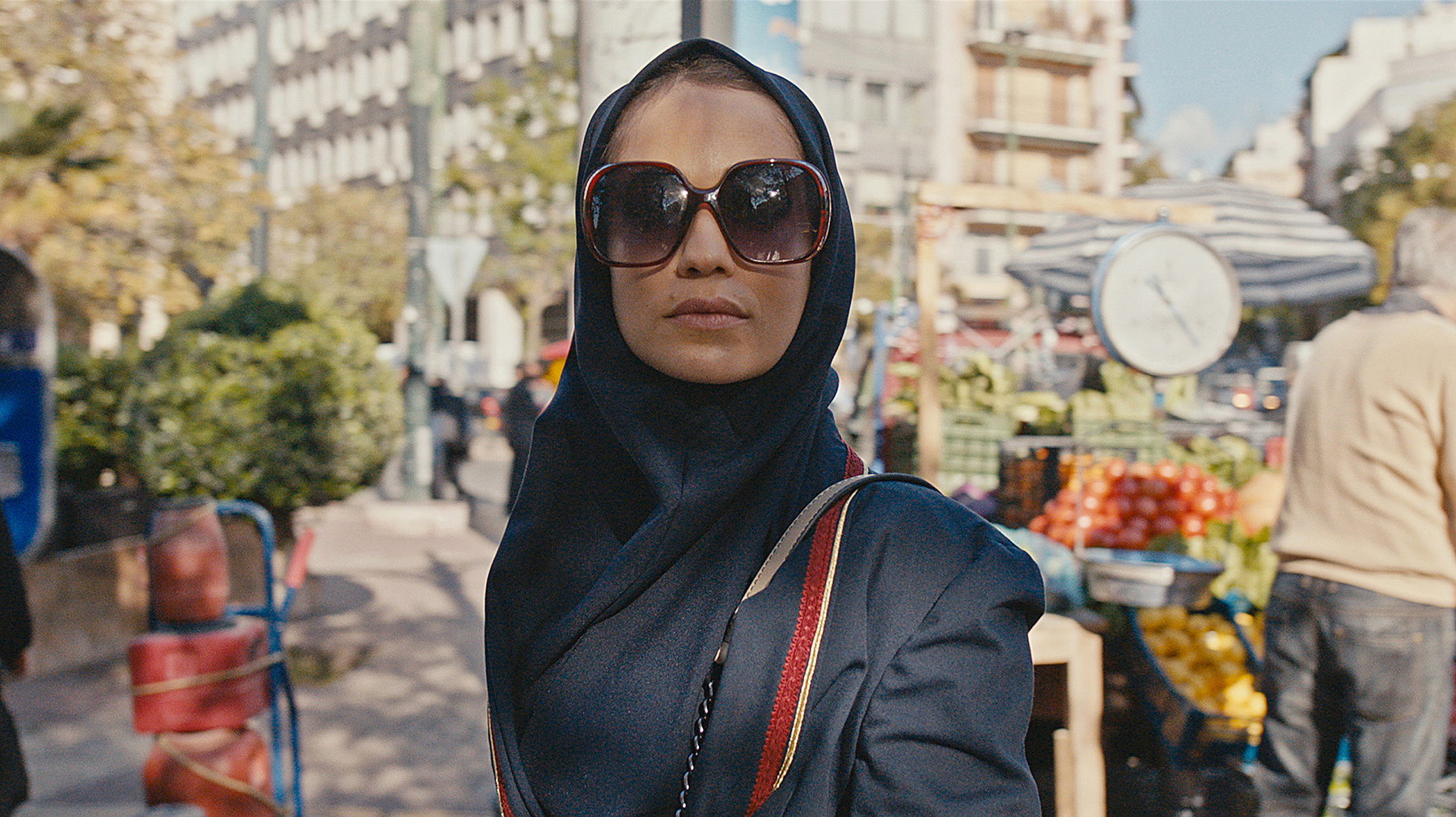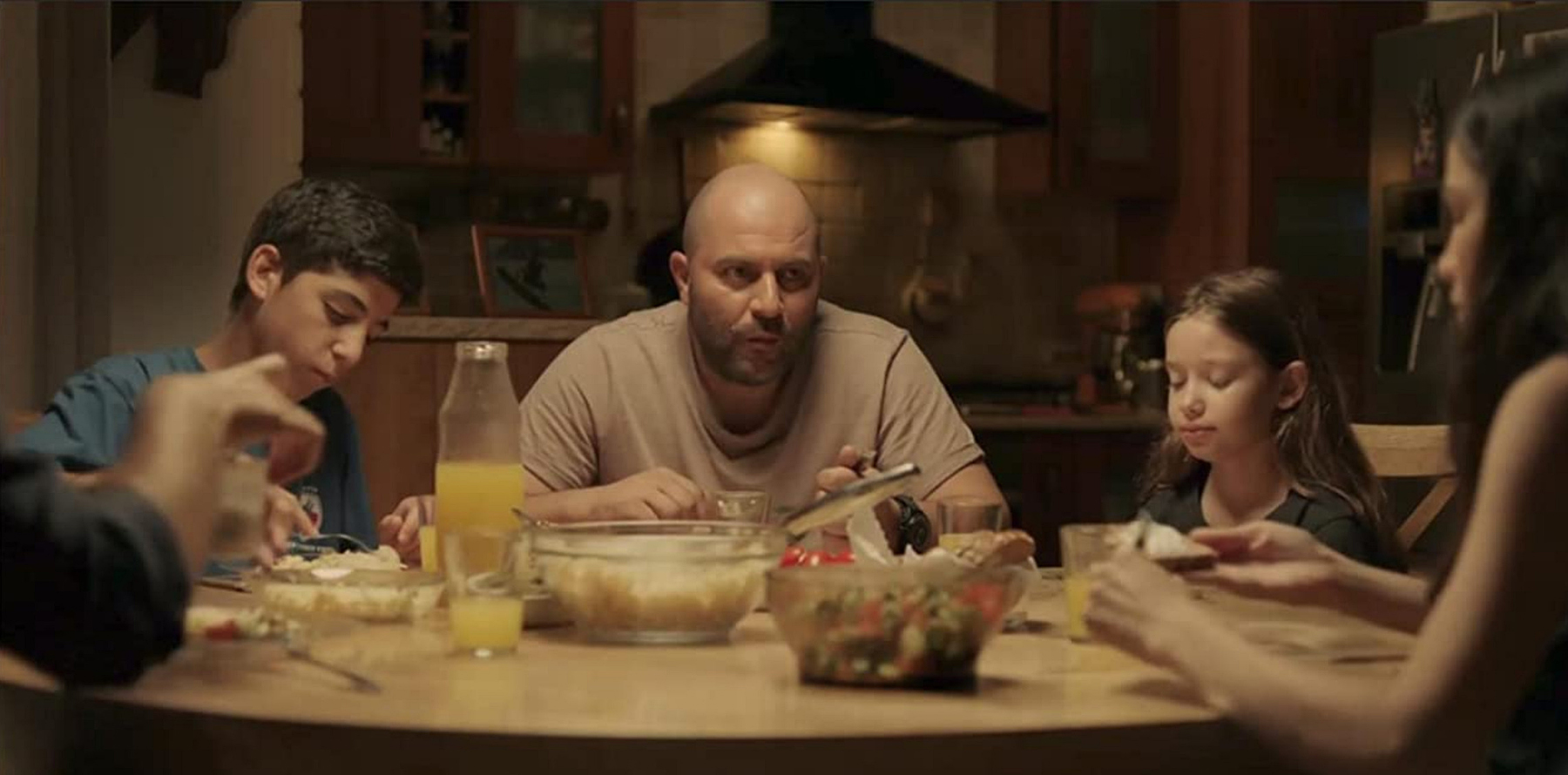
- Interviews
Moshe Zonder Hopes “Tehran” Will Build a Bridge Between Iran and Israel
Moshe Zonder, the head writer of the Israeli award-winning hit series Fauda, an espionage series centered on the Israeli-Palestinian conflict, turns his gaze to Israel’s archenemy, Iran, in Apple TV’s eight-part series, Tehran. This edge-of-your-seat thriller follows a young Mossad operative, Tamar Rabinyan (Niv Sultan), an Iranian-born, Israeli-raised spy who goes undercover in Iran to disable a nuclear reactor that makes fuel for atomic weapons. Israeli-born Zonder, a former investigative journalist, brings a unique approach to these complex situations rather than the standard ‘good guys versus bad,’ and offers a more realistic perspective on the major players from both sides.

Beginning with Fauda, what struck me was your approach to the characters – the Israeli’s weren’t all good, and the Palestinians not all bad. Was that a conscious decision to create a balanced view between these intractable enemies? You employ the same device in Tehran, in which you show the commonalities and not only the differences between these dueling forces.
Yes, it was a conscious decision. For many years I was an investigative journalist, and I’ve always wanted to cross borders, both physically and mentally, in order to meet the people that I’ve been told all my life are my enemy who wants to kill me. I went often to the Gaza Strip and West Bank. In Gaza, I interviewed Sheikh Ahmed Yassin, the founder of the Hamas Movement, who was later killed by Israeli fire, and many more leaders and activists of the Hamas movement. Sheikh Yassin and his bureau chief at the time, Ismail Haniyeh, who is today the leader of the Hamas, gave me their personal perspective on the conflict so that I could better understand the suffering and the motivations of the Palestinian people. I wanted to hear the Hamas people’s narrative from them, which I did on the occasion when I met their families. Those meetings affected me very much and led me years later to write the first season of Fauda.

Was it difficult to sell Fauda?
In the beginning, no broadcast channel in Israel wanted Fauda. We were disappointed but not really surprised, because I knew that for Israeli society at the time, the only question about a character like Abu Ahmed, the antagonist of the show, who was the head of the Hamas military regime, was whether we succeed in killing him or not. But I wanted to create a character with a human face, someone who adores his wife and loves his children madly and who misses them: as the most wanted man he couldn’t meet them, but he did everything he could to try to see them, even if it meant risking his life. I wanted the Jewish Israeli audience to be able, maybe not to identify with him, but to understand him. To show a character like Abu Ahmed on Israeli prime-time TV seemed like a science-fiction scenario at first. And the fact that more than half of the show is in Arabic was too much for Israeli prime-time TV. But then an amazing thing happened – many Jewish Israelis started to learn Arabic.
How did the idea come to you for Tehran?
I’ve always dreamt of writing about Iran. Mahmoud Ahmadinejad, who used to be Iran’s president, kept saying for years that Israel must be eliminated. But leaders, from both sides, are many times cowards and use this kind of terminology when they can’t deal with their country’s inner problems. But I knew there was something much more. There are a lot of similarities between Israelis and the Iranian people.
It was interesting to see the life of young Iranians enjoying what we think of as ‘Western’ parties and lifestyle choices.
We wanted to take the audience on a trip to this secret, beautiful, and magical Tehran, that we never see on the TV news. We discover the lives of young Iranian people – their culture, music, the way they dress, how they party. We wanted to reveal the daily life of Iranian youth who want to become free. I personally adore them. They demonstrate in the streets of Tehran against the Ayatollah. They have so much courage, risking their freedom and their life. I hope the series can give Israelis and viewers from all over the world a different perspective on Iran.
Why did you choose Tamar Rabinyan as your protagonist?
It was a political decision to make our protagonist a young woman. This world of espionage thrillers is usually so manly. For Omri Shenhar, who wrote the show with me, and for me, it was much more interesting for us as men to write this young woman’s character. When Tamar got into trouble, had conflicts, and needed to decide what she could do as a woman to save her life, it was exciting for us to sit together and think about what she would do. Niv Sultan plays the role of Tamar in an unforgettable way, managing to express toughness along with vulnerability.
And, like her character, she was born in Tehran?
Yes. She lived there until the age of six, and then her parents took her as immigrants to Israel. She had a great childhood and she is coming back now to the views, colors, smells, tastes, and language that she liked and missed so much. But now Tehran is the most dangerous place on Earth for her.
What was the feedback to the show from Iranians?
The most moving feedback we got came from the second generation of the Jewish immigrants from Iran who came to Israel, people who are now 30 or 40 years old. They were born in Israel or came here as small children, and they were ashamed of their parents’ and grandparents’ heavy Farsi accents that people laughed at, and the way they dress and the culture they brought from Iran. And after watching Tehran, many of them told us how proud they are now of their Farsi heritage and immigrant parents and grandparents, and they’re ashamed of themselves for being ashamed all those years. This feedback is something more than we could have dreamt of. I don’t look at it from the outside. I know exactly what they are talking about. I used to feel the same about my own immigrant parents’ heritage.
And from those living in Iran?
We had very positive feedback from Iranian viewers, who loved the series. I had also the opportunity to talk with young Iranians on the set in Athens [which stood in for Tehran], and to understand that we have so much to talk about and have so much in common. I couldn’t get enough of it. It was thrilling.
Do you believe there could be peace between Israel and Iran?
I do. Israelis and Iranians even look like each other. When we see young people from Iran posting their videos on YouTube, if you put it on mute they look just like Israelis. There is no reason for us to be enemies. Israel’s greatest enemy was Egypt, which was much more dangerous to us than Iran. I remember as a child, in 1977, sitting with my parents and two sisters in our home in Holon, watching television together when Egyptian President, brave Anwar Sadat, came to Israel. When he came out of his plane, all of us started to cry. I know that peace between Israel and Iran seems impossible today, but I am sure it will happen one day.
Maybe it begins with your show?
If Tehran would even start to build something like a little bridge between the people of Iran and the people of Israel, it would be the best thing that can happen with the show.
Clearly, you’re interested in the world of espionage. Would you have made a good spy?
When I was an investigative journalist, I did some research undercover, with a wire on me, in order to record some meetings. I had to do it in order to expose corrupt people and corrupt, powerful institutions, and it was very important for the public. I was sure, and still am, that I did the right thing, but I don’t want to lie, even for the best reason. The most important thing for a spy, and for a journalist, is that the people you speak to will trust you. I know I have this ability. So, I think I could have been a spy, but I would not like it. I want always to be able, to tell the truth.

